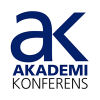Description of sessions
Delivery of Biologics
During the last decade, the importance of biological drugs has increased and as a result around one third of new drugs approved belongs to this group. While they have revolutionized the treatment of several diseases, there are still challenges to formulate these active substances in products that are patient friendly and have a good physical stability in room temperature. As new more complex modalities are entering development phase, the need for finding new ways to delivery these drugs will only increase. This session will focus on recent advances in formulation and characterization of biological drugs. It will give insights in how to meet the challenging around stability, introduce novel formulation concept and display how advanced characterization methods can be used to characterize these systems.
Drug delivery and formulation
Drug delivery and formulation are key to translate drug compounds from early drug discovery to effective and patient-compliant drug products. Each therapeutic area and administration route pose different challenges and barriers to the efficient and safe delivery of drug compounds with diverse physicochemical properties. This session will focus on recent advances in advanced drug delivery systems for small molecules and biopharmaceuticals. It will give insights in formulation development and the assessment of drug release and performance for the intended administration routes using state-of-the-art in silico, in vitro and in vivo methods.
Virtual drug delivery
Computational pharmaceutics is gaining importance as a formulation tool during drug development. The virtual formulation scientist can effectively screen formulation strategies for drug compounds based on their physicochemical properties and gain understanding on the fate of drug delivery systems in vivo. This complements experimental efforts and also contributes to the reduced use of in vivo models in line with the 3R principles. This session will focus on the use of computational methods such as computational fluid dynamics, molecular dynamics, artificial intelligence, PK/PD and particle dynamics modelling, to support development of novel drug delivery systems and understand complex biological processes affecting drug distribution in vivo.
Advanced analytics and characterisation methods
A deeper understanding of drug substances, drug formulations and delivery systems will provide us with the possibilities to innovate and develop in these areas. Drug formulations and delivery systems are complex, and the interactions between components and the structure from atomic level and up is of importance for stability and performance. The structural and chemical changes that occur once a drug product is administered need further understanding for a successful future development. This session will focus on the use of advanced analytics and characterisation methodologies to address improved insight and understanding of drug structure, from API to administered drug product.
John Sjögren seminar
John Sjögren had a long and very successful career as industrial leader and adjunct professor in the field of drug delivery and pharmaceutical formulation. In those capacities, he was a portal figure in Sweden in the transformation of the process of formulation of drug products from empiricism to science and in the implementation of biopharmaceutics as a scientific discipline. Several important medicines bear his signature characterised by innovative solutions to complex drug delivery issues.
This seminar is organised to honour his unprecedented industrial and scientific accomplishment in the drug delivery field. The seminar will have both a retrospective part, describing some of John Sjögrens activities, and a prospective part focusing on future challenges and on emerging scientific trends in the drug delivery field.
Contact
Academic Conferences
Phone + 46 (0) 18 67 10 03
E-mail: newhorizons2023@akademikonferens.se
(for practical questions about your registration)
Important dates
31 October Abstract submission closes (Extended date)
late October Abstract notification
3 November Deadline to register
27-29 November Conference dates


